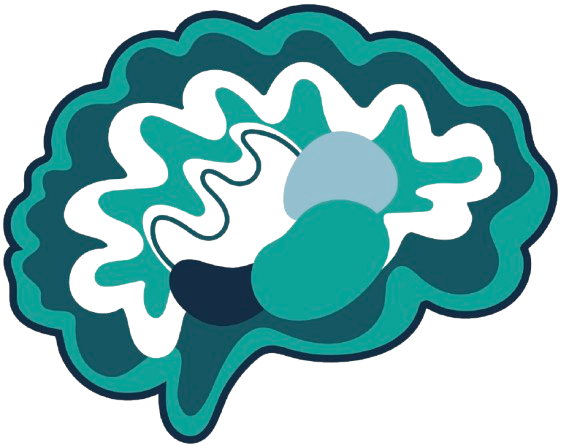Helping Children Thrive
About
Dr. Kelly specializes in helping bright kids and teens learn to soar, despite their daily struggles in school or difficulties in learning to read. Success in school starts with a better understanding of how your child thinks and learns and then making a detailed improvement plan from that point. School should not hurt. Planning a different course starts here.
NECCA is a specialized practice fully dedicated to providing comprehensive support for children, adolescents, and young adults facing cognitive, learning, or developmental challenges.
Our mission is to help individuals access the understanding and tools needed to learn, grow, and reach their full potential.

We Specialize in Evaluating
Dyslexia and Other Problems
Learning Disorders
AD/HD and Other Attention-Related Disorders
Executive Functioning Concerns
Autism Spectrum and Social Communication Disorders
Traumatic Brain Injury Including Concussion Management
Neurocognitive Profiles Related to Medical and Genetic Disorders
Testing Accommodation Needs (College and Entrance Exams)


Dr. Karen Kelly
Dr. Karen Kelly is the director of NECCA, a distinguished neuropsychological and educational clinic that has been fully dedicated to providing comprehensive support to children facing various cognitive or learning challenges for two decades. Dr. Kelly is a pediatric neuropsychologist and certified school psychologist who has advanced training in how the developing brain impacts development and learning.
Dr. Kelly did her predoctoral fellowship training at Primary Children’s Hospital in Salt Lake City, UT and postdoctoral fellowship training at Nemours/duPont Hospital for Children. In addition, Dr. Kelly worked for over 6 years at Nemours/duPont Hospital for Children working with children with traumatic brain injury and neurodevelopmental disorders.
She has also been a special education teacher for 15 years and has full exposure to the educational, clinical, and medical aspects of neurocognitive functioning. Dr. Kelly specializes in consulting with pediatricians, psychiatrists, neurologists, teachers, and other professionals. Dr. Kelly is also the author of the book The Power of Visual Imagery, A Reading Comprehension Program for Students with Reading Difficulties.
Our Approach
Comprehensive, Collaborative, Personalized
We believe a diagnosis is just the starting point.
Our approach focuses on:
- In-Depth Understanding: Delving into the complexities of brain function and its impact on learning, behavior, and emotions.
- Holistic View: Integrating developmental history, observations, assessment data, and input from parents and teachers to build a complete picture.
- Personalized Plans: Tailoring evaluations and recommendations to meet the unique needs of each individual.
- Collaborative Partnership: Working closely with parents, caregivers, and other providers throughout the process.
- Actionable Roadmaps: Developing clear, practical recommendations designed to foster success at home, in school, and in life.

Testimonials
Yay! We Did It
Dr. Kelly’s expertise has been a game-changer for our family. Her knowledge of testing children with a learning difference to pinpointing areas for remediation without overwhelming you is second to none.
Her ReAD.IT program helped our son make measurable reading progress when he struggled with other well-known programs. Most importantly, she identifies your child’s strengths when others around them struggle to see any.
My twins were born at 23 weeks and I’ve seen my fair share of doctors and specialists in an effort to understand and support their growth and development. When deciding the best middle school choice for them, I took the advice of a friend and made an neuropsychology appointment with Dr Kelly for one of my twins.
Her ability to immediately connect with him and build rapport while thoroughly assessing his strengths and weaknesses was at a level we never experienced. The level of detail in her testing as well as recommendations and follow up support has exceeded my expectations and experiences with previous providers.Needless to say, Dr Kelly has since seen my other children and has been equally thorough and instrumental in supporting their unique needs.
When searching for answers, Dr. Kelly came highly recommended to me. My son underwent a very comprehensive neuropsychological exam which provided much needed explanations as to why he was struggling both academically and socially. As a result, Dr. Kelly recommended a course of action to help my son with these barriers.
With Dr. Kelly’s input, the school developed a tailored IEP plan that specifically targeted his needs. Not only did my son flourish academically but also socially! Throughout the entire process, Dr. Kelly was always available to answer questions and provide her feedback.
Karen conducted a thorough and insightful evaluation for my daughter and provided valuable recommendations for her cognitive and emotional well-being. She took the time to explain the results in a clear and understandable manner. She showed me her areas of strength and weakness and she recommended specific schools to best suit her needs. I would highly recommend her.
Dr. Kelly’s expertise has been a game-changer for our family. She will make you and your child feel at ease from day one. Her knowledge of testing children with a learning difference to pinpointing areas for remediation without overwhelming you is second to none.
Her ReAD.IT program helped our son make measurable reading progress when he struggled with other well-known programs. Most importantly, she identifies your child’s strengths when others around them struggle to see any.
Dr. Karen Kelly has been an instrumental partner in shaping the lives of our three children since we first started seeing her in 2013. We had sought previous Neuropsychological and School evaluations for our oldest child attempting to capture her Twice Exceptional strengths and challenges and found that other practitioners under explained her giftedness and over pathologized her Auditory Processing and attention issues.
Dr. Kelly was able to not only capture our child in real time, but she provided us with crucial education about who our daughter was as a learner and how to best support her success. Empowered with this information, we were able to work with Dr. Kelly to support her in different educational settings over the years and now that she is in college, we can truly say that she would not be thriving to this degree without this guidance.
We have enjoyed the same expert guidance with our two younger children, and have come to think of Dr. Kelly as the first person we rely on for support with challenging school or learning related issues. We cannot thank her enough- our children have been uplifted, enabled to see themselves as capable and competent, and we, as parents, have been empowered to believe that that the educational choices we make are well-informed by someone who sees them in the most positive and brightest lens.
Thank you Dr. Kelly for being a true advocate to all children and families!
At first, it was easy to make excuses as to why my son was having difficulty in school until it could no longer be ignored. When searching for answers, Dr. Kelly came highly recommended to me.
My son underwent a very comprehensive neuropsychological exam which provided much needed explanations as to why he was struggling both academically and socially. As a result, Dr. Kelly recommended a course of action to help my son with these barriers.
Additionally, with Dr. Kelly’s input, the school developed a tailored IEP plan that specifically targeted his needs. Not only did my son flourish academically but also socially!
Throughout the entire process, Dr. Kelly was always available to answer questions and provide her feedback. Looking back after a successful year, I could not imagine where my son would be today without Dr. Kelly!

